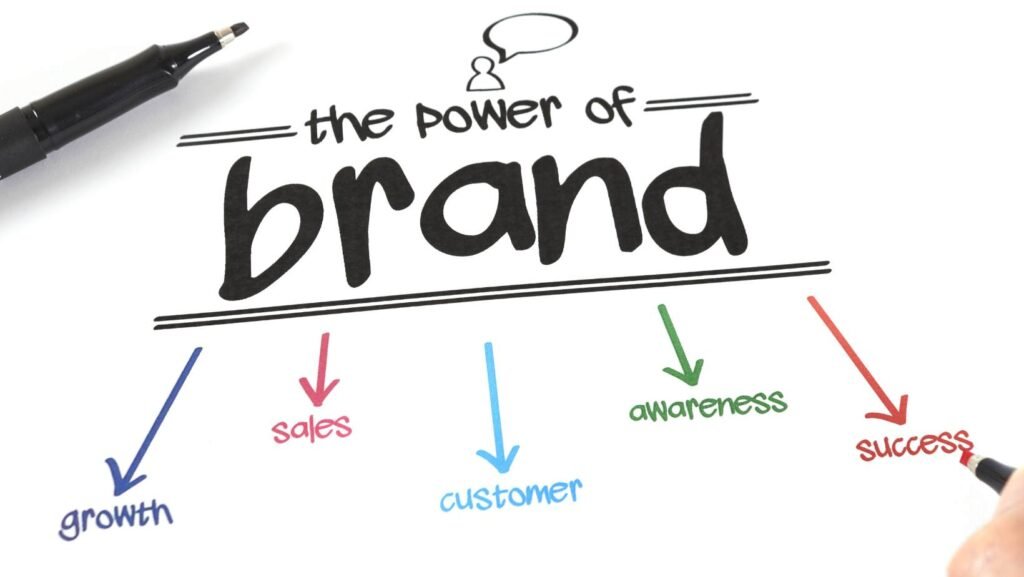In today’s highly competitive market, professional branding for small businesses is not just an optional strategy—it’s an essential part of standing out from the crowd and building lasting customer relationships. Whether you’re running a local café or a boutique consulting firm, branding shapes how people perceive your business. It can create trust, define your company’s personality, and, ultimately, drive growth.
This article dives deep into the significance of branding, especially for small businesses, and provides a guide on how you can craft a strong brand to elevate your business.
What is Professional Branding for Small Businesses?
At its core, branding is much more than just a logo or a catchy tagline. Professional branding for small businesses encompasses the entire identity of your company—the way you present your business to the world and how the world perceives you. It’s about the visual identity, the voice, and the values your business represents.
Branding sets you apart from competitors. For small businesses, it’s critical because you’re competing not just with local businesses but often with larger corporations that have more resources. Professional branding, when done right, helps small businesses establish a strong market position, attract the right audience, and build loyalty.
 Why is Professional Branding Important for Small Businesses?
Why is Professional Branding Important for Small Businesses?
Small businesses face unique challenges. Without the expansive budgets that large corporations have, they must maximize every opportunity to make a lasting impact on customers. Here’s why branding matters:
1. Creates Recognition and Trust
In a world flooded with choices, consumers are more likely to trust a brand they recognize. Consistent branding across all touchpoints—whether it’s your website, social media, or packaging—builds familiarity. The more familiar your business becomes, the more likely customers are to trust you.
2. Differentiates Your Business
Professional branding for small businesses allows you to carve out a niche. A strong brand identity helps communicate what makes you different, whether it’s your customer service, your product quality, or your unique values. This differentiation is critical to capturing the attention of your target audience.
3. Builds Customer Loyalty
A recognizable and relatable brand fosters loyalty. Consumers are more likely to support a business that shares their values and consistently delivers a positive experience. For small businesses, customer retention is key, and branding plays a pivotal role in nurturing long-term relationships.
4. Enhances Credibility
No matter how small your business is, having a polished, professional brand can enhance your credibility. Customers perceive branded businesses as more established and trustworthy. Even with a limited budget, a strong brand presence can make a small business look bigger and more reputable.
How to Brand a Small Business
Creating a successful brand for your small business involves a clear strategy, attention to detail, and a deep understanding of your target audience. Here’s how to effectively brand a small business:
1. Define Your Brand Identity
Start by determining what your business stands for. Identify your core values, mission, and unique selling proposition (USP). Ask yourself, “What do I want my business to be known for?” Once you’ve established this, craft a brand identity that reflects these values through your visual and verbal communication.
2. Understand Your Audience
You can’t effectively brand your business without understanding who you’re speaking to. Conduct research to identify your target audience’s needs, preferences, and pain points. Tailor your branding to resonate with them.
3. Create a Memorable Logo and Visuals
Your logo is often the first impression a customer has of your business, so it needs to be memorable and visually appealing. Along with your logo, ensure you have consistent color schemes, fonts, and imagery that align with your brand’s message across all platforms.
4. Craft Your Brand Voice
Your brand voice is the tone and style in which you communicate with customers. Whether it’s formal, friendly, humorous, or professional, ensure it matches your brand’s identity and resonates with your audience.
5. Consistency is Key
Once you’ve established your brand identity, ensure it’s applied consistently across every customer touchpoint. From your website to social media to customer service, every interaction should reflect your brand.
What are the 4 V’s of Branding?
Understanding the 4 V’s of branding is crucial for small businesses aiming to build a strong identity. These elements—Vision, Voice, Values, and Visuals—form the foundation of any brand.
1. Vision
Your brand’s vision represents its long-term purpose and impact. It’s more than just profit; it’s the higher purpose that drives your business. Small businesses can differentiate themselves by having a clear vision that resonates with their customers’ beliefs.
2. Voice
As mentioned earlier, your brand’s voice is how you communicate with your audience. Whether you’re writing an email, posting on social media, or speaking with customers, the tone should be consistent and reflect your brand’s personality.
3. Values
Your brand values are the guiding principles behind your business. For small businesses, this often reflects the personal values of the founders. Having strong, authentic values can create emotional connections with your audience, building trust and loyalty.
4. Visuals
Finally, the visual aspect of your brand—logos, colors, fonts, and imagery—helps customers instantly recognize your business. Keep your visuals professional and aligned with your brand’s identity to leave a lasting impression.
How Much Does Branding Cost for Small Businesses?
The cost of professional branding for small businesses can vary widely depending on the scope of the branding efforts and the quality of the services you choose. Here’s a rough breakdown:
- DIY Branding: If you’re starting on a shoestring budget, you may choose to handle branding yourself. You can create logos and visual assets using tools like Canva or free design templates. This option is inexpensive but may lack the polish of professional work. Costs can range from $0 to $500.
- Freelancers: Hiring a freelance designer or branding expert is a step up. They can help with logos, visual identity, and website design, giving your brand a more professional look. Expect to pay anywhere from $500 to $5,000, depending on the freelancer’s experience.
- Branding Agencies: For a more comprehensive approach, branding agencies offer full-service packages. They handle everything from market research to designing your visual identity and brand strategy. However, this is often the most expensive route, costing anywhere from $5,000 to $50,000 or more, depending on the complexity of the project.
While the cost of branding may seem high for small businesses, it’s an investment that pays off over time. A strong, consistent brand can boost your visibility, customer loyalty, and overall business success.
How Important is Branding for Small Businesses?
Branding is critical for small businesses looking to make a mark in a crowded marketplace. A well-executed brand strategy builds recognition, fosters customer loyalty, and establishes trust—all of which are essential for long-term growth.
Small businesses that invest in professional branding not only increase their credibility but also create a memorable identity that differentiates them from the competition. The time and money spent on branding are returned many times over in customer acquisition, retention, and brand equity.
Conclusion
In today’s competitive business landscape, professional branding for small businesses is a necessity rather than a luxury. From building trust and recognition to enhancing credibility, branding plays a vital role in the success of any small business. By investing in a strong brand identity, understanding the 4 V’s of branding, and recognizing the importance of consistency, small businesses can thrive and grow in any market.



